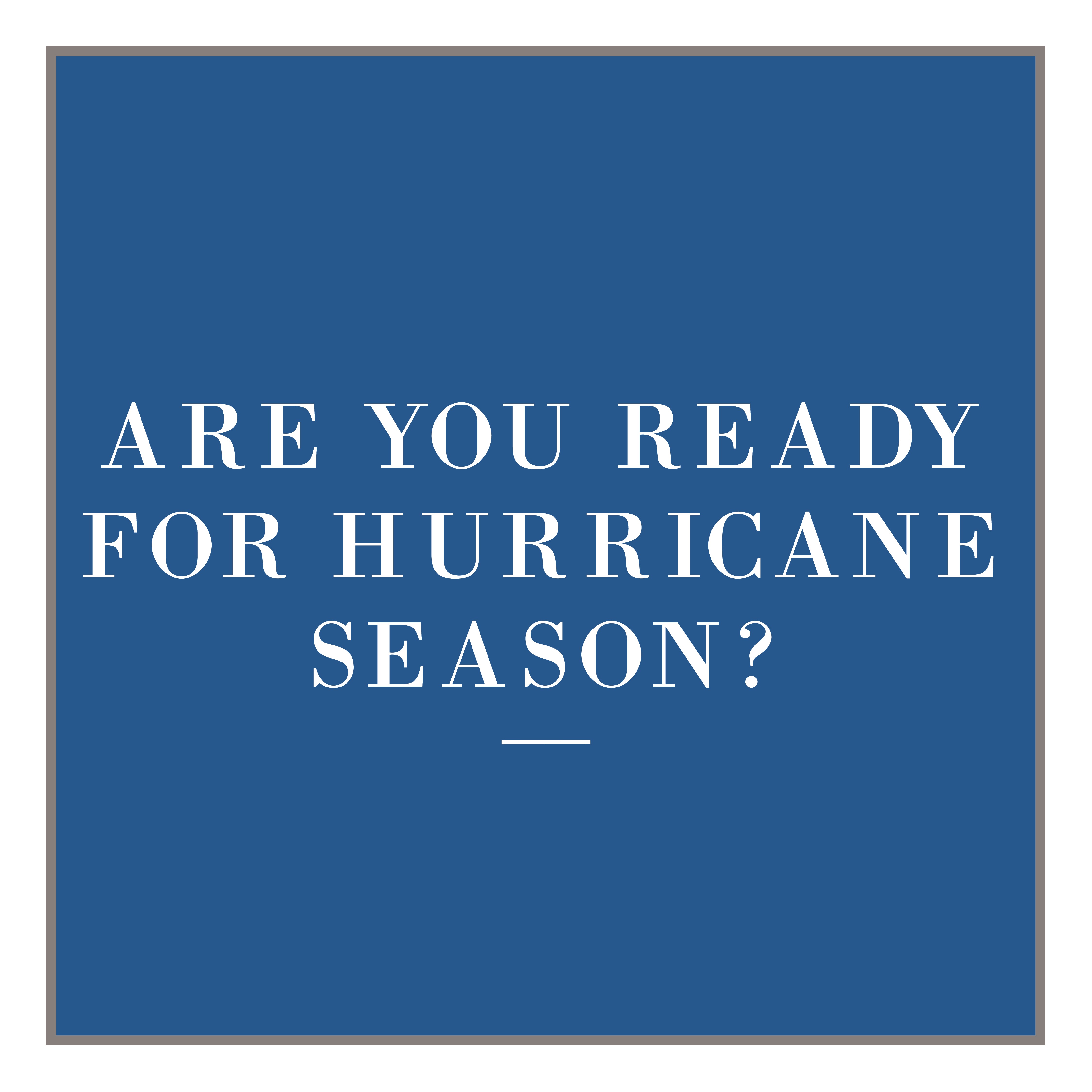
Are You Ready For Hurricane Season?
Posted by Financial Strategies Group in Blog Posts, Giving More, Hurricane, insurance, Weather Protection
12
Jul
2018
Are you ready for Hurricane season?
As most of you are aware, especially from all the content being shared on “how to best prepare for a storm” lately. Hurricane season “officially” started on June 1st. I recently read an article myself where the author highlighted the concept of what being “well prepared” really means. From setting yourselves up with at least $1,000 in cash, to food and water and the ability to cook without electricity. The article also discussed the obvious necessities of flashlights, batteries and having enough fuel for gas-powered generators.
Each of these items are necessary, and speaking from personal experience, will make the aftermath of a storm much more bearable. However, the number one item that I recommend didn’t even make this list. We learned first-hand that the amount of insurance coverage your home has is critical. Making sure your homeowner’s insurance is current and up to date with the true value of your belongings should be a top priority; after safety of course. Furthermore, do you know whether you have replacement value or depreciated value? These are questions we should all be asking ourselves before a natural disaster.
Most insurance agents are pretty good at determining the value of your structure. They use a cost estimating program to collect all the specific construction details on your home. Factors such as wood versus brick, carpet versus wood floors and granite versus marble all factor into this cost. Kim and I did okay on the structural coverage. However, we came up short when estimating the coverage of our personal belongings. Truly think about the cost to replace every single item in your home. Even more importantly, do you have an actual detailed list of all your belongings?
After you finish reading this article, please take the time and walk around your home. Take a basic video of each room on your phone. Take plenty of photos. It’s hard to think about all of the people in California who had just minutes, or even seconds to evacuate their home before it was destroyed by the wildfires. The difference here, is that we do have the time to prepare, assess and evacuate.
In Florida, you can have multiple policies on your home. In our case, we had the standard homeowner’s policy. This policy covers incidents involving both fire or theft, to name just a couple. We also had a wind policy in place. However, this only comes into play “if” the roof was damaged, or the windows were blown out as a direct result of those winds. Our last policy covered floods. This is the policy that saved us when over two feet of ocean water entered our home. We also learned that Federal law governs this type of coverage, not state law. Our major takeaway here was that if you decide to hire a public adjuster, please make sure they have experience with flood claims and get some references.
We realize that there is a ton of information out there and it can be completely overwhelming. The important thing here is to make sure that you are educated on flood insurance, even if you are not necessarily required to have it. Even if you don’t think you will ever need it. Set up a time to speak with your insurance agent about getting a policy in place and get some insight on the topic.
Why is this important? Look at the catastrophic flooding in Houston, Texas. Data from the Insurance Information Institute showed that only 28% of homes were in a high-risk area, and only 15% of those homes had coverage. Why is this percentage so low? Because in most cases, only homeowners in a flood zone who are applying for a mortgage are required to have coverage, as a condition of that loan. The remaining homes were not in a flood zone or had probably paid off their mortgage. Imagine working over 25 to 30 years to pay off your home and then having that home destroyed by a flood. The interesting part is, that paying for flood insurance for a home that isn’t in a flood zone is inexpensive.
While none of us enjoy paying insurance premiums. When there comes a time that you really need that coverage, it can mean the difference between total financial ruin or just dealing with the emotional loss, while having the ability to rebuild.
We knew which option we preferred, and when Hurricane Irma hit, we can’t say we regretted all of those years we paid for an insurance premium “that we might never need”.



